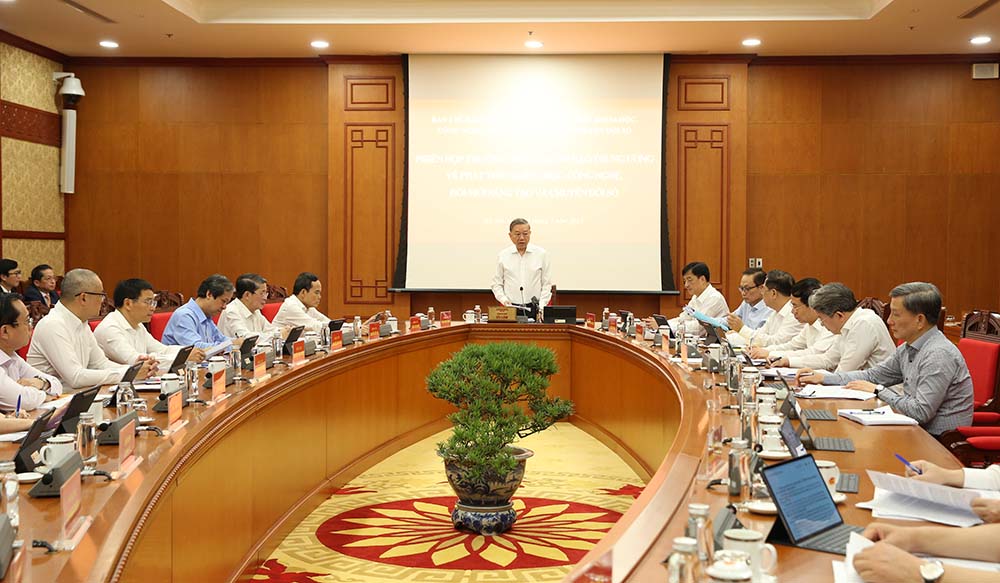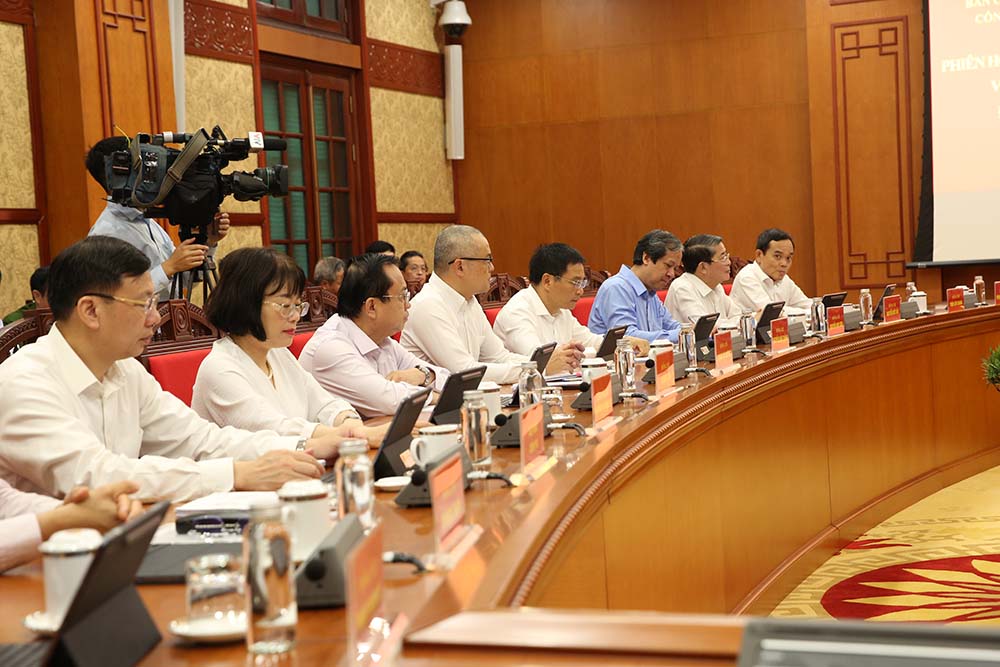Many ministries, branches and localities are still very confused
This morning (May 29), at the Party Central Committee Office, General Secretary To Lam chaired a meeting of the Standing Committee of the Central Steering Committee on Science, Technology, Innovation and Digital Transformation Development (Steering Committee).
Speaking at the meeting, General Secretary To Lam suggested that delegates discuss and evaluate the slow, delayed tasks, bottlenecks, recommendations, and specific solutions in implementing Resolution 57 of the Politburo.
According to the General Secretary, currently, some ministries, branches and most localities are very confused in implementing Resolution 57. The implementation is still formal, and specific tasks that need to be done in accordance with the industry and locality have not been determined.

The General Secretary gave an example of the fact that although there was a policy of allocating 3% of the budget for science and technology, innovation, and digital transformation, there are currently 15 ministries, branches and 20 localities registering additional capital. From registration to effective implementation is still a process.
Previously, many places complained about lack of funding, now that there is funding, there is a special mechanism, but they do not know how to spend it. Many places are not clear, do not know what to do, and are still very confused in implementation - the General Secretary suggested an in-depth assessment and solutions to promote movement in the entire political system.
Regarding online public services, according to General Secretary To Lam, we have only evaluated the management and social governance of serving the people, while the service for production and business is still very far apart. Therefore, it is necessary to apply science and technology to be highly productive.
The General Secretary said that according to the report, there are about 32% of full online public services, however, of which 82% of full-process services did not generate online records in the first 6 months of the year. This shows that people are not interested in online public services because they are currently only transferring paper documents to electronic records, which is very formal.
"Many people are still wondering, they just let us make it out of paper, both electronically and paper. Then the agencies do not connect, still have to exchange documents between the agencies.
The main reason is that agencies do not have electronic data, do not have digital data. The procedure for resolving these procedures is very complicated. People still have to do it both in paper and in paper. If we continue like this, we will not meet the requirements" - the General Secretary analyzed.

The General Secretary emphasized that data connection between agencies is extremely important. Of the 13 newly inspected agencies, the total number of databases to be built is 80 but currently only 14 have been completed, only 18%. This has not met progress and requirements. If ministries and branches do not have a database, it is difficult to mention a national database.
The underlying reason is that state agencies do not have complete data and are not connected, so creating correct, complete, clean, and reliable data is a matter of decisive significance, the General Secretary stated.
The world has come true, I still dream a lot
Referring to the strategic technology portfolio, the General Secretary mentioned solving the country's major problems, directly for the development goals by 2030 and 2045.
The General Secretary expressed his wish that when the country has a robot factory, when it has a factory without lights, a port without lights, it will still operate day and night, and will work all the time in any rain or wind.
According to the General Secretary, people are affected by weather and time factors, but machines do not need those things, working at any time can be highly productive. These things have come true in the world, "I am still a big dream, my dream is too far away".
In addition to the new trend categories, the General Secretary also said that it is necessary to evaluate and clarify the policies for developing science and technology that are very necessary for the Vietnamese economy such as high-tech agriculture, aquaculture, processing of forest products and seafood, civil construction, construction materials technology, construction technology of traffic works, biotechnology, and microbiological technology. The world is also very focused on that.
The General Secretary also mentioned the issue of energy sources and power sources for development. Many countries cannot develop anymore due to lack of electricity. We can see these stages in the study of money and need to synchronize them together - the General Secretary said.










